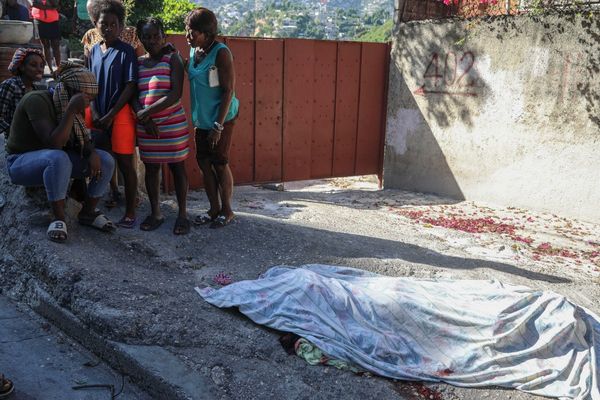WINNIPEG — The Manitoba government plans to lift its COVID-19 restrictions by mid-March, easing them in stages starting next week, Premier Heather Stefanson said Friday.
The current 50 per cent capacity limits in restaurants, concert venues, cinemas, hockey arenas and other venues will be eliminated Tuesday. Caps on gatherings in people's homes will also be removed at that time.
On March 1, people will no longer need to show proof of vaccination to enter public venues. Indoor mask requirements and all other restrictions are to end on March 15, with the possible exception of mask use in long-term care homes.
"It's time for a new normal to begin in Manitoba," Stefanson said. "We need to end the divisiveness between families, between communities. We need to move forward."
The move comes as some health indicators point to the strain on health care easing. New COVID-19 hospital admissions have dropped and the number of people in intensive care is down from its most recent peak two weeks ago.
"There certainly is that strain on the health-care system. It has come down from what we've seen," said Dr. Brent Roussin, the province's chief public health officer.
The opposition parties accused the Progressive Conservative government of caving in to protests against vaccine restrictions that have erupted outside the legislature grounds and near the United States border crossing in the Emerson area.
"This is Premier Heather Stefanson giving in to the convoy. This is capitulation," NDP Leader Wab Kinew said.
"It's absolutely clear to me this is being done for political reasons. There was no public health evidence to back this up," said Liberal Leader Dougald Lamont.
While the demand on hospitals has dropped from its peak, it remains well above normal. The 101 people in intensive care beds, including non-COVID patients, is 29 above the normal pre-pandemic capacity. Surgeries and diagnostic tests across the province have been postponed in order to free up beds and staff.
Groups that represent health-care professionals said the health system wasstillstruggling.
"While we continue to have crowded ICUs, ERs and hospitals, while patients continue to wait to be seen ... one can't help but wonder if this decision was made politically rather than scientifically," Manitoba Nurses Union president Darlene Jackson said in a statement.
"While all of us are ready for the pandemic to be over, it is important for Manitobans to be cautious a little longer to protect our hospitals, and to ensure we don't slidebackwardand end up making this Omicron wave last even longer," Doctors Manitoba said in a release.
"Doctors strongly recommend for all Manitobans to continue following public health COVID-19 guidance even if it is no longer reflected in a government restriction."
Roussin talked about the need for balance.
"We probably all know people who have been adversely affected by these restrictions," Roussin said.
"We're looking for that balance where we have to consider the adverse effects of these restrictions and do whatever we can to have the least restrictive measures in place."
Stefanson said she was not influenced by the protesters, some of whom have parked trucks and honked horns outside the main entrance to the legislature for a week.
"This is a decision that is made for Manitobans who have sacrificed much of their lives for the last two years and are ready for this," she said.
Health officials announced another four COVID-related deaths Friday, bringing the total in the province during the pandemic to 1,619.
This report by The Canadian Press was first published Feb. 11, 2022.
Steve Lambert, The Canadian Press







